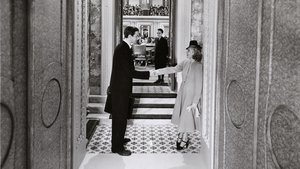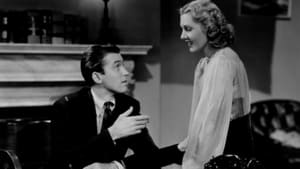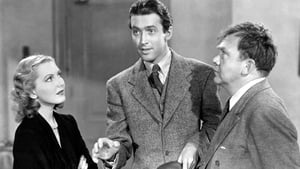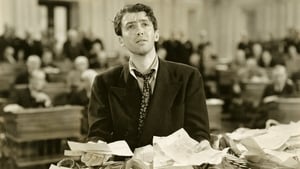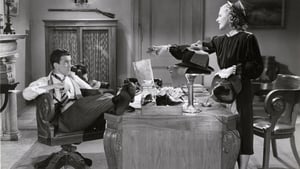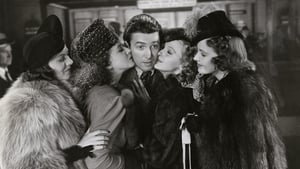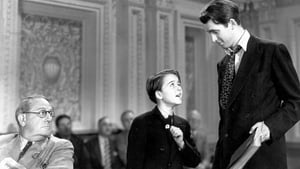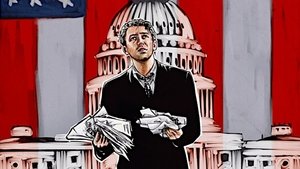Video Sources 0 Views
- Watch trailer
- Mr. Smith Goes to Washington 1939 Colorized

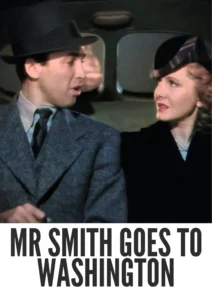
Synopsis
Table of Contents
ToggleAn Idealistic Senator’s Fight: Mr. Smith Goes to Washington (1939) in Vivid Color

Step into Frank Capra’s vision of American politics with Mr. Smith Goes to Washington, a profoundly patriotic and sentimental film from 1939, now beautifully colorized for a contemporary viewing experience. Starring James Stewart, this movie showcases the struggle of an honest man against corruption. Perfect for those who appreciate classic cinema and stories of unwavering integrity, this HD download brings a timeless and inspiring film to your screen. Also known under the title Mr. Smith, this movie still resonates today.
Mr. Smith Goes to Washington Storyline: Fighting for Ideals
Mr. Smith Goes to Washington tells the story of Jefferson Smith (James Stewart), an idealistic and patriotic leader of the Boy Rangers, who is unexpectedly appointed to the United States Senate. Naive to the ways of Washington D.C., Smith is quickly confronted with the harsh realities of political corruption.Arriving in Washington, Smith is mentored by Senator Joseph Paine (Claude Rains), a seasoned politician who was a childhood friend of Smith’s late father. However, Smith soon discovers that Paine is entangled in a corrupt scheme to profit from a land deal involving a national dam project. When Smith attempts to expose the corruption, he becomes the target of powerful and ruthless political forces determined to silence him.With the help of his secretary, Clarissa Saunders (Jean Arthur), Smith wages a courageous battle against the corrupt political machine. He stages a filibuster on the Senate floor, speaking for 24 hours straight to prevent the passage of the corrupt bill. Facing intense pressure and personal attacks, Smith refuses to back down, determined to fight for his ideals and the values he believes in.
Movie Cast
The film features a stellar cast of actors who bring this inspiring story to life:
- James Stewart as Jefferson Smith
- Jean Arthur as Clarissa Saunders
- Claude Rains as Senator Joseph Paine
- Edward Arnold as Jim Taylor
- Guy Kibbee as Governor Hubert “Happy” Hopper
Movie Genre
Mr. Smith Goes to Washington falls into the genre of patriotic sentimental film, with elements of political drama and comedy that are characteristic of Frank Capra’s directorial style. Its themes of idealism, integrity, and the fight against corruption make it a timeless and relevant film.
Historical Context: Hollywood’s Golden Age
Released in 1939, Mr. Smith Goes to Washington is considered one of the greatest films of Hollywood’s Golden Age, reflecting the social and political concerns of the era. The film was produced during a time when the United States was grappling with issues of economic inequality, political corruption, and the threat of war in Europe. While the film was controversial at the time of its release, it resonated with audiences who were inspired by its message of hope and the power of individual action.
Colorization Details
This colorized version of Mr. Smith Goes to Washington has been carefully restored using advanced digital techniques, enhancing the visual impact while preserving the film’s original spirit. The colorization process involved meticulous analysis of the original black and white footage, with attention to historical accuracy in the color palette. This painstaking process brings new depth and vibrancy to the characters and settings, making the story even more immersive for today’s viewers. While the debate around colorizing classic films continues, this version offers a fresh perspective on a beloved film, inviting new audiences to appreciate its enduring message.
Technical Details
- Director: Frank Capra
- Screenplay: Sidney Buchman
- Story: Lewis R. Foster
- Cinematography: Joseph Walker
- Edited by: Gene Havlick, Al Clark
- Production Company: Columbia Pictures
- Distributed by: Columbia Pictures
- Runtime: 129 minutes
Technical Specifications
- Download Format: MP4
- Resolution: HD (1080p)
- Compatibility: Compatible with most devices, including smartphones, tablets, computers, and smart TVs.
Reviews and Critical Reception
Mr. Smith Goes to Washington is widely regarded as a cinematic masterpiece, celebrated for its powerful storytelling, memorable performances, and enduring themes. The film has been praised for its portrayal of American idealism and its critique of political corruption. It remains a relevant and inspiring film that continues to resonate with audiences around the world.
FAQs
- Q: What is Mr. Smith Goes to Washington about?
- A: Mr. Smith Goes to Washington is about an idealistic senator who fights against corruption in the United States Senate.
- Q: Is Mr. Smith Goes to Washington (1939) considered a classic film?
- A: Yes, Mr. Smith Goes to Washington is widely regarded as one of the greatest films of Hollywood’s Golden Age.
- Q: Is this version of Mr. Smith Goes to Washington colorized?
- A: Yes, this version has been professionally colorized to enhance the viewing experience.
- Q: What makes Mr. Smith Goes to Washington so relevant today?
- A: The film’s themes of idealism, integrity, and the fight against corruption continue to resonate with audiences in today’s political climate.
- Q: What is the download format?
- A: The download format is MP4, which is compatible with most devices.
- Q: What resolution is the download?
- A: The resolution is HD (1080p), providing a high-quality viewing experience.
Download Now in HD!
Watch Mr. Smith Goes to Washington Today!

